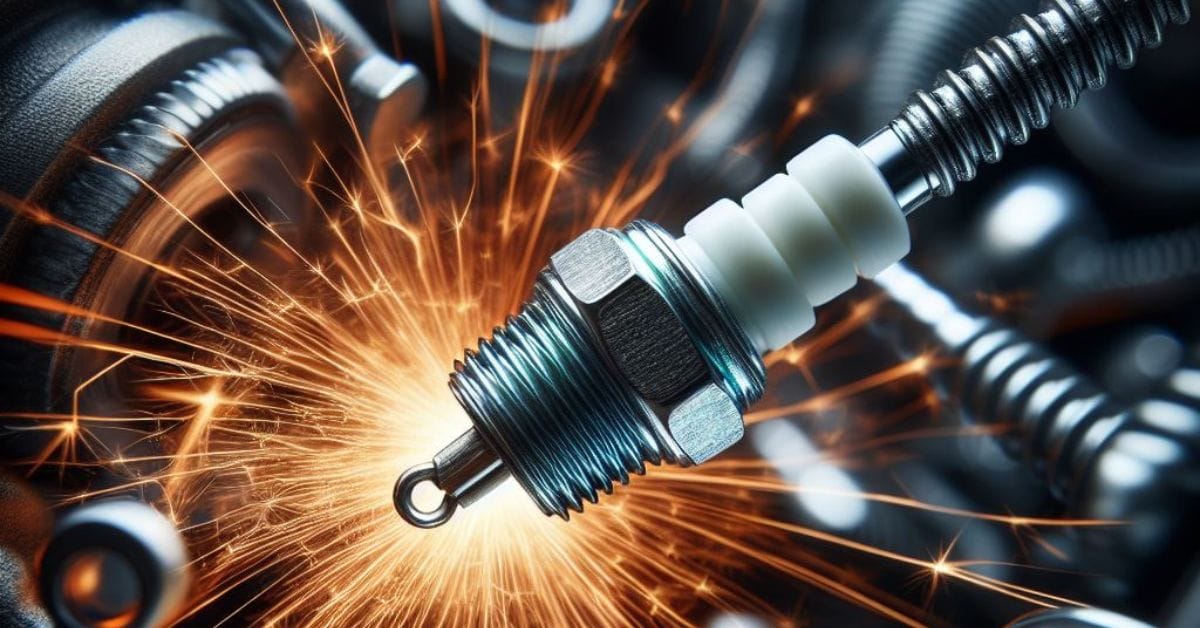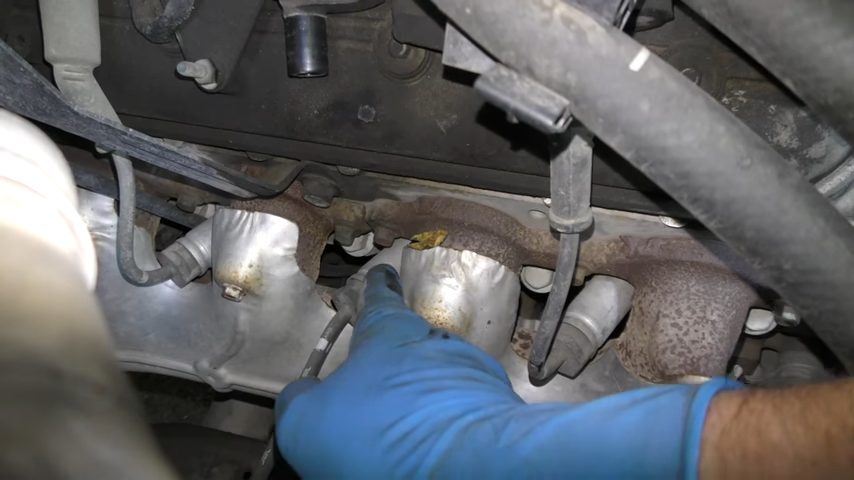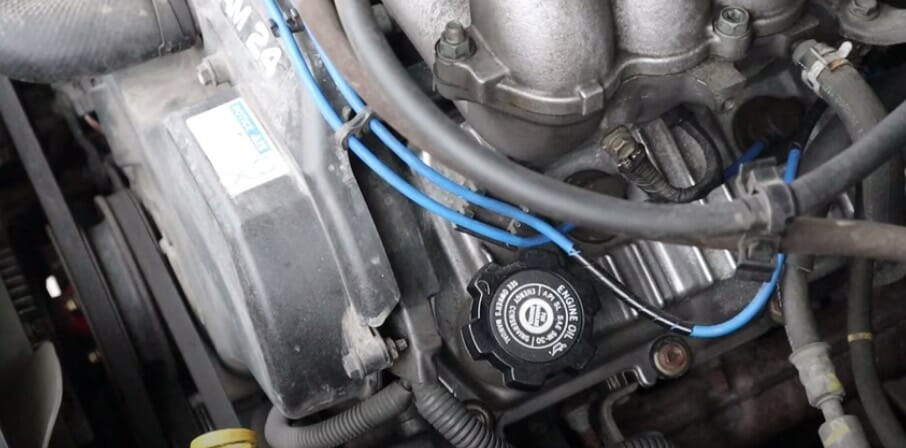How Long Does Spark Plug Wires Last? (Guide)

Hey there, gearheads and DIY enthusiasts! Ever wonder how long your spark plug wires are supposed to last? You’re not alone.
These unsung heroes of your ignition system are critical for a smooth ride, but they don’t last forever. A standard spark plug wire can last about 60,000 to 100,000 miles.
In this guide, I will help you understand how long spark plug wires can last and how to diagnose a faulty spark plug wire. Without working spark plug wires, your engine cannot fire properly.
Understanding Spark Plug Wire Lifespan
Let’s dive into the heart of the matter – spark plug wire lifespan. You might think, “Just tell me a number,” but it’s not simple. See, a lot of factors come into play.
If you’re rolling with high-quality wires, you’re looking at around 60,000 to 100,000 miles of solid performance. But, if you’ve opted for something less pricey, you might be shopping again after 30,000 miles. It’s a “you get what you pay for” deal.
Maintenance is key, my friends. A little bit of attention goes a long way when it comes to keeping your spark plug wires in peak condition.
Factors Affecting Spark Plug Wire Durability

When it comes down to it, spark plug wire durability isn’t just a game of numbers. It’s about understanding how big and small elements play a part in the longevity of your car’s vital components.
Let’s dive into the nitty-gritty of what affects the lifespan of these electrical lifelines.
Quality
If you’ve opted for wires covered in premium insulation materials, you’re already on track for a longer-lasting electrical romance with your engine. These materials fend off the high under-hood temperatures like a champ, keeping your wires cooler and happier for extended periods.
Voltage Demands
High-performance engines are the track stars of cars, and they need robust equipment to match their pace. Too much voltage can stress out standard wires, while wires built for performance can handle the extra volts without sweat.
Mechanical Environment
It’s all about location, location, location. Wires that rub against sharp edges or get all cozy with hot engine components are in for a rough time. It’s the fast track to wear and tear city, leading to potential insulation breakdowns.
Electrical Interference
It’s like the spam calls of the automotive world. Unwanted electrical noise from myriad sources can wreak havoc on your spark plug wires’ efficiency and health. Shielded wires can throw that interference a knockout punch, ensuring a smooth flow of electricity to your spark plugs.
Regular Inspections
It’s like giving your wires a checkup. A quick look could reveal early signs of wear and tear that often go unnoticed, which can head off bigger problems down the road. So watch for any damage because spotting it early means a smoother ride and fewer headaches later.
Remember, performance isn’t just about horsepower or torque. It’s also about maintaining the components that make that power possible. Treating spark plug wires with a little TLC goes a long way.
Symptoms of Worn-Out Spark Plug Wires
When it’s time to check under the hood, knowing the telltale signs of failing spark plug wires is key. Your car will let you know when something’s amiss if you’re tuned in. Let’s dive into the symptoms you shouldn’t ignore.

- Rough idle. This is a classic red flag. It feels like your engine is sputtering or having tiny hiccups as you wait at a stoplight. That smooth purr you’re used to? Gone. Instead, it’s like your engine’s had too much coffee—jittery and uneven.
- Loss of Power. If you’re hitting the gas and it feels like you’ve got an old donkey instead of a stallion under the hood—that’s a loss of power. When spark plug wires fail, they can’t deliver the needed spark consistently. It’s like trying to run a sprint with one leg. You just can’t get that full power when you need it most.
- Misfires They can catch you off guard, and you’ll feel them as subtle or sometimes not-so-subtle jerks as you drive. Let’s be honest; no one likes surprises, especially not from their engine.
- Poor fuel economy. If you’re noticing your gas tank drains faster than a bathtub, worn-out spark plug wires might be your culprit. They can mess with the combustion process, causing your engine to gulp down fuel like there’s no tomorrow.
- Engine light shows on your dashboard. That illuminated check engine light can be a beacon, signaling that it’s high time for a spark plug wire inspection.
After all, knowing is half the battle, and now you’re equipped to catch those spark plug wire issues before they catch you.
Preventive Measures and Maintenance Tips

Let me tell you, maintaining the longevity of your spark plug wires isn’t something you want to play by ear. Proactive care is crucial, and I have some golden tips to help you keep those wires powering your engine like a champ.
- Regular inspection is the MVP here. It’s not just about waiting for symptoms – take charge and check those wires every now and then. Look out for cracks or wear and tear because even the smallest sign of damage can mean it’s time for a replacement. And trust me, keeping an eye out now can save you a lot of trouble.
- You are avoiding harsh chemicals, remember? They might be sneaky, but corrosive substances can wreak havoc on your wires. So, when sprucing up your engine, remember what you’re splashing around.
- Installation is another piece of the puzzle. Ensure those spark plug wires are snug as a bug, but don’t overdo it. A tight, secure fit without over-tightening ensures the best electrical connection and prevents arcing. Remember, there’s a sweet spot between too loose and tight – find it, and your engine will thank you.
- Upgrading to premium-quality wires might cost you more now, but it’s an investment in your vehicle’s future. These high-grade cables can take the heat (literally) and give you better performance and durability.
- Avoid the temptation to mix and match. If you’re replacing your spark plug wires, do it as a complete set. Mixing old and new wires is like mixing stripes and polka dots – nobody wants that under their hood.
When to Replace Spark Plug Wires
Let’s dive into knowing when to replace those spark plug wires. I can’t stress this enough. You have to be proactive.

- Mileage. Most car pros agree you should check your spark plug wires every 30,000 miles. But hey, if you’re rolling with premium quality wires, you might get away with more miles before they need a checkup. Listen, not all wires are created equal, and the better the wire, the longer the wire life.
- Symptoms. Your car’s like a buddy telling you when it’s feeling down. If you notice a rough idle, a sudden increase in fuel consumption, or the dreaded misfire, your wires might be waving a white flag. Keep your eyes peeled for obvious signs of wear and tear, too. Cracks, splits, or corrosion? That’s your cue. They’re begging for a swap.
- Hunch, but no visible clues. That’s when you bust out the ohm meter. It’s a tool that measures resistance, and it’s a handy little gadget that can save you a lot of headaches. Don’t wait for a miracle if the resistance is higher than spec. It’s time for a change.
Do these, and you’re on your way to ensuring your vehicle runs smoothly and your spark plug wires live a full life. Keep rolling, and remember, taking care of your ride’s spark plug wires is a big deal for your car’s health and peace of mind.
Common Misconceptions About Spark Plug Wires

Let’s bust some myths. Often, folks cling to outdated ideas about spark plug wires, and it’s high time we clear the air, right?
Spark plug wires last forever and need to go. Just like other parts of your ride, these wires age. They handle thousands of volts regularly, and they’ll wear out over time. It’s not a question of if but when. Typically, a set can last anywhere from 60,000 to 100,000 miles, but this is more a ballpark figure than a promise.
Some say that all wires are the same, but that’s like saying all sneakers are made for marathons. Not true! High-performance engines thrive with specialized wires, while a regular commuter car might not need that extra oomph.
Then there’s the notion that more expensive means better performance. Sure, pricier options often come with fancier features—better insulation, higher-quality materials—but your vehicle might not need the deluxe version. Your best bet is to meet or exceed OEM specifications; they didn’t pick those standards out of a hat.
Another common confusion is around the idea that thicker wires give more power. It’s not about size but the quality of the wire and its compatibility with your engine. A wire that’s too thick can be as much of an issue as one that’s too thin.
Finally, don’t get duped by the myth that changing one is changing them all. Sure, it’s best practice to replace the whole set if one goes bad because they typically wear at about the same rate. But if you’re in a pinch and just one wire bit the dust, replacing only the faulty one can get you rolling again.
Remember these misconceptions next time you dive under the hood or chat with your mechanic. Just remember, a well-maintained set of spark plug wires is like the unsung hero of your vehicle’s engine—without them, you’re not going anywhere.
References
Organizations:
- Society of Automotive Engineers (SAE). https://www.sae.org/
Books:
- “Automotive Wiring and Electrical Systems” by Tony Candela. https://books.google.com/books/about/Automotive_Wiring_and_Electrical_Systems.html?id=myi2QmV5RmUC
- “How Cars Work” by Tom Newton. https://www.goodreads.com/en/book/show/980808
Website Resources:
- Engineering Choice. https://www.engineeringchoice.com/
- AutoZone. https://www.autozone.com/
- Advance Auto Parts. https://shop.advanceautoparts.com/
Video References:
Scotty Kilmer
Way of the Wrench
